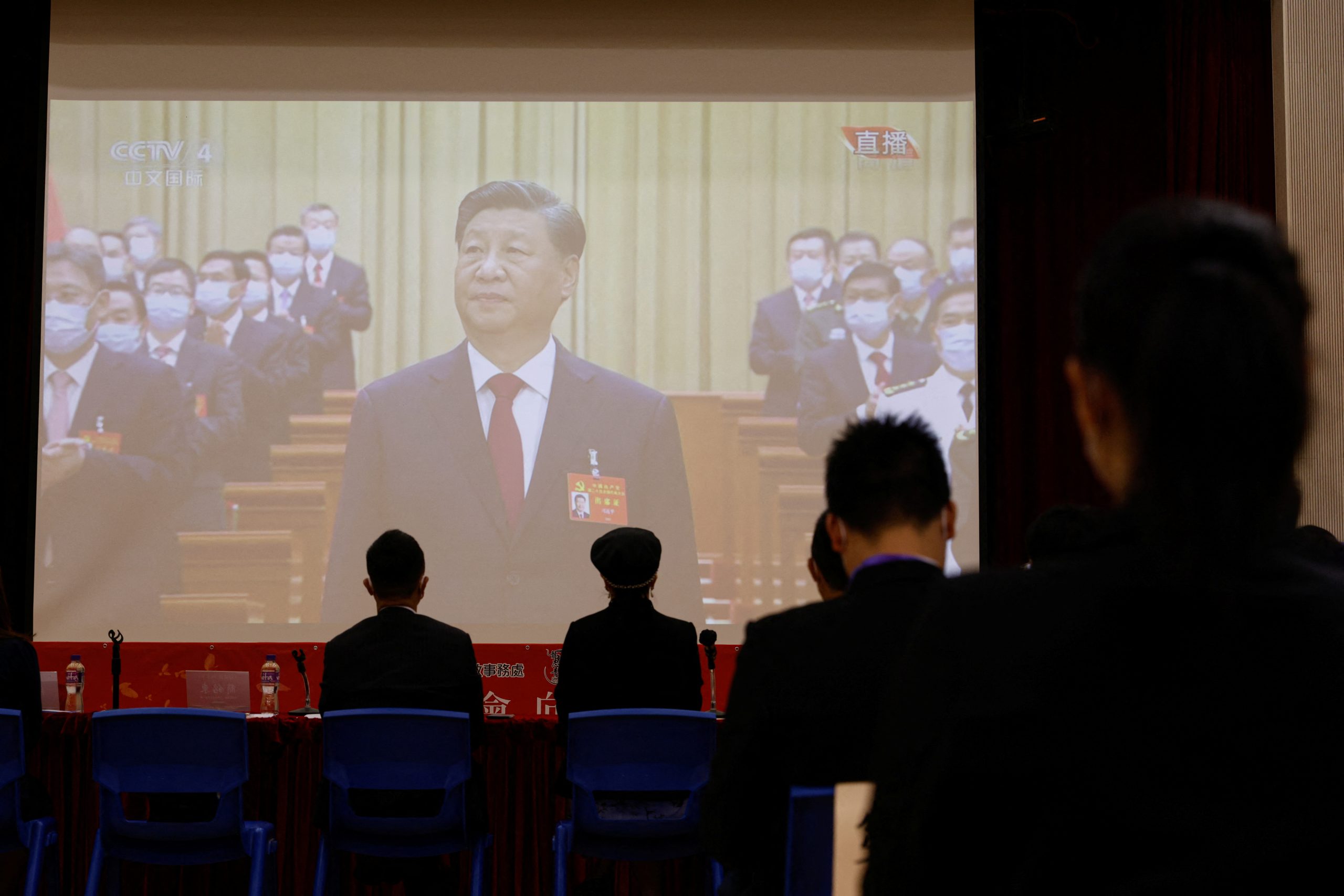
Willie R. Tubbs, FISM News
[elfsight_social_share_buttons id=”1″]
The coming week figures to be historic for both Chinese leader Xi Jinping and the rest of the world. It remains to be seen whether history eventually views what is to come as a pivot point toward good or evil.
Starting Sunday and proceeding through the coming week, the Chinese Communist Party will host its 20th National Conference. At some point during the meetings, Xi will be granted an unprecedented third term as general secretary.
This move will be in keeping with numerous power plays Xi has made within his party and comes just under a year after the Chinese government passed a proclamation officially celebrating Xi’s leadership. The government had taken such a step only twice before: for Mao Zedong, the father of Communist China, in 1945 and Deng Xiaoping, Zedong’s successor, in 1981.
China’s ruling party has already removed any barriers from Xi remaining president, which makes this week’s expected announcement telling inasmuch as it reveals Xi has progressed farther down the path to full dictatorship and another sign that Xi will be allowed to enact his plans, both domestically and internationally, without fear of resistance or reprisal.
For a nation known for human rights violations, constant expansionist efforts on both the economic and territorial front in the Indo-Pacific, and a willingness to partner with the likes of Russia and Iran, as well as international pariahs like North Korea, Xi’s latest power grab is par for the course.
“As the 20th Party Congress begins this weekend and Xi Jinping consolidates his power and preaches ‘common development for all mankind,’ the CCP’s widespread campaign of oppression and economic instability will continue,” Senators Bob Menendez (D-N.J.) and Jim Risch (R-Idaho), Chairman and Ranking Member of the Senate Foreign Relations Committee, said in a joint statement. “From its predatory economic behavior to the crushing of the religious and cultural autonomy of Tibet, its campaign of genocide against the Uyghur people, its unrealistic ‘zero COVID’ policies, and the imposition and exportation of digital authoritarianism – the Communist Party today under Xi is more active and more emboldened than ever before.”
China has emerged as the top challenger to the United States’ status as the world hegemon. The two countries have been in fierce competition in the areas of technology and oil and at odds on numerous fronts geopolitically, most notably disputes over U.S. diplomacy with Taiwan and support for a free Hong Kong.
The Biden administration has thus far been relatively silent on the matter of Xi’s ever-expanding influence in China. President Joe Biden, in two speeches, one on Thursday and another on Friday, bragged of having spoken often with Xi but did not truly offer an opinion on the man poised to rule China indefinitely.
Biden, whose deficiencies as a public speaker are particularly ill-suited to moments when tact and nimbleness are important, seemed to indicate that Xi was a powerful leader for whom the U.S. would have to account, but delivered his remarks in such a way that his meaning was obscured if not lost altogether.
“I’ve spent more time with Xi Jinping than any person in — any head of state in Amer- — in the world. I spent over — they keep count of it — 78 hours’ worth,” Biden said in a Thursday speech. “Of that, 68 were in person, over the last 10 years, because Barack knew that he couldn’t be dealing with a Vice President. And so, he assigned me. I’ve traveled 17,000 miles with him. This is a guy who understands what he wants but has an enormous, enormous array of problems. How do we handle that? … So, folks, there’s a lot going on. A lot going on. But there’s also enormous opportunities for the United States to change the dynamic in the second quarter of the 21st century.”
The president repeated the hours-logged claim Friday.
Biden might have not articulated his stance well, but the White House has made competing with China on numerous fronts central to its national security strategy.
“The [People’s Republic of China] is the only competitor with both the intent to reshape the international order and, increasingly, the economic, diplomatic, military, and technological power to advance that objective,” the document outlining the strategy reads.
Meanwhile, China and Xi continue to march forward ever threatening the likes of Taiwan and Hong Kong with less freedom, squashing dissent within the borders of China, and, if virtually all human rights organizations are to be believed, oppressing ethnic Muslims in the Xinjiang province.
“Xi Jinping’s tenure as the General Secretary of the CCP has been characterized by totalitarianism, genocide, slowed economic growth, and unprecedented aggression against the United States and its allies,” Sen. Marco Rubio (R-Fla.), a member of the Senate Foreign Relations Committee, said in a statement. “If he succeeds in his bid for absolute control and achieves a third term, it should shred any remaining expectations of a ‘responsible power’ in the Indo-Pacific. Rather, we should expect a one-man-ruled CCP to be more willing to wage war over Taiwan, more repressive at home and abroad, more dominating of business, and more insistent on overturning the U.S.-led rules-based world order.”
